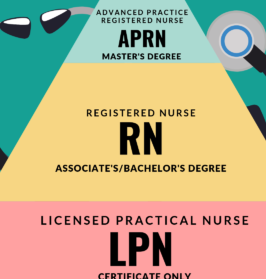 Getting into nursing means meeting some essential educational requirements. There are different types of nursing roles, each with its own set of qualifications. The below qualifications are some of examples which helps you to find out which one suits you best.
Getting into nursing means meeting some essential educational requirements. There are different types of nursing roles, each with its own set of qualifications. The below qualifications are some of examples which helps you to find out which one suits you best.
Registered Nurses (RNs) usually start with an Associate Degree in Nursing (ADN) or a Bachelor of Nursing (BN). The BN might give you a bit more scope for career advancement later on, but the ADN can get you into the field faster.
Licensed Practical Nurses (LPNs) or Licensed Vocational Nurses (LVNs) take a different route. You’ll need to complete a practical nursing program and pass the exam. This role is more focused on basic patient care and usually takes less time to get into compared to an RN.
Moving toward to more advanced roles such as Nurse Practitioner (NP), Clinical Nurse Specialist (CNS), Nurse Anesthetist (CRNA), or Nurse Midwife (CNM), you’ll need to go further with a Master’s or Doctoral degree in nursing. These roles not only require advanced degrees but also specific certifications and licensing to practice.
Whether you’re just starting out or on going an advanced practice role, knowing what educational steps to take can set you on the right path. Make sure to research programs thoroughly and understand the requirements for the specific nursing career you’re interested in.
Daily Life and Essential Skills of a Nurse
It is unpredictable how your day could be as a nurse; it can go from calm to chaotic in seconds. It is depending on which settings you work—hospital, clinic, or home care—your tasks will vary. In general, it involves monitoring patients, administering medications, coordinating with doctors, and updating patient records. Furthermore, there’s a huge part of your responsibility which is providing emotional support to patients and their families.
Skills are essential in nursing as well as critical thinking and problem-solving are must-haves. They help you make quick, accurate decisions when emergency comes. Communication is so crucial—whether it is communicating with doctors, patients, their families or other health professionals. Being clear and compassionate is key and pay attention to detail is non-negotiable. That’s why small oversights can have big consequences.
Let talk about empathy, empathy makes great nurses apart from good ones. Being able to understand and share the feelings of your patients helps build trust and offers better care. Another aspect of that is nurses often work long hours, and the job can be physically demanding. Being able to stay on your feet and react quickly, when necessary, can make a significant difference.
Managing diverse duties is part of what makes nursing a challenging yet rewarding career. You might find yourself bouncing between different tasks, sometimes under pressure. You may find these varied responsibilities also mean there’s rarely a bored moment and as always while the work is demanding, it’s also incredibly fulfilling. At the end of the day, you’re making a tangible difference in patients’ lives every single day.
Exploring Nursing Specializations and Career Advancement
Nursing offers a wide range of specializations; you choose your own career pathway according to your interests. I am going to list out some of the most common specialties of nursing that you might find it suits you.
Let’s start with Pediatric Nursing where you focus on caring for children from infants to teenagers. In contrast, Geriatric Nursing is all care for older adults, managing the unique health issues that come with aging. Now, you are going to immerse yourself in a scary busy environment which is Emergency Nursing which is for those who thrive in high-stress, fast-paced situations. On the other side of nursing, Oncology Nursing is geared towards cancer patients which requiring both strong clinical skills and emotional resilience if you wish to be in.
Meanwhile, Cardiac Nursing focuses on heart-related ailments, perfect for those intrigued by cardiovascular health. Nurse Anesthesia involves administering anesthesia and requires additional training but comes with a higher salary to reflect the extra responsibility. How about helping moms and babies, Nurse Midwifery specializes in prenatal, birth, and postnatal care is the one.
Let’s talk about advanced practice roles offer another level of specialization. Nurse Practitioners (NPs) can diagnose illnesses, prescribe medication, and form treatment plans. Clinical Nurse Specialists (CNSs) focus on improving healthcare systems and may work in management or specialized clinical areas. If you are interest in the operating room, becoming a Certified Registered Nurse Anesthetist (CRNA) could be the ideal path and get higher paid at the same time.
Advancing in nursing often means further education and specialized training. Continuing education keeps you updated on the latest medical advancements and helps you gain certifications in specialized areas. In saying that, experience in specialized fields can also lead to leadership roles or advanced practice positions. Therefore, networking with professionals and seeking mentorship can offer invaluable support and open doors you might find its beneficial.
Navigating the Nursing Profession: Hours, Stress Management, and Job Outlook
As nurses, you often find yourselves working 12-hour shifts, with nights, weekends, and holidays shifts. Shift work is pretty common; however, some nurses are interested in positions with more traditional 8-hour shifts. Being flexible with your hours is a choice and working 12 hours rostered shifts can bring benefits such as more days off in a row and more leaves.
Let’s discuss about the non-negotiable topic – STRESS. Stress in nursing is unavoidable, but there are ways to manage stress. Self-care is vital—regular exercise, healthy eating, and getting enough sleep can make a difference. It’s also helpful to seek support from colleagues who understand what you’re going through. Using relaxation techniques like deep breathing or mindfulness can help you stay centered during hectic shifts. Importantly, don’t forget the essential of having a balanced work-life schedule and accessing mental health resources when needed.
The job outlook for nurses is strong, driven by an aging population and increasing healthcare needs. The demanding for nurses is expected to grow, which means plenty of job opportunities across various settings and specializations. While job prospects can vary by region, generally speaking, nurses are in high demand.
Essentially, understanding the differences between RNs and LPNs/LVNs is also important. RNs have more extensive training and can perform more complex tasks, including critical decision-making and overseeing other staff. LPNs/LVNs focus more on basic patient care but also play a crucial role in healthcare teams.
Last but not least, staying current with medical knowledge and practices is a must in nursing. Many states require ongoing education for license renewal. Nurses often attend professional conferences, take continuing education courses, and stay informed about the latest research and best practices.
Lastly, remember, working in nursing is demanding but also deeply rewarding. By navigating the challenges wisely, you can build a fulfilling and impactful career.
How do you think about this article? Let me know your opinion and your comments are highly appreciated.
